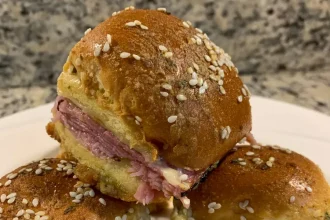According to the study, hibiscus extract reduced cell growth and reduced the invasiveness of mouth and plasma cell cancers.
Professor of Naturopathic Healthcare and President of Nyarkotey College of Holistic Medicine & Technology (NUCHMT)/African Naturopathic Foundation, Prof Nyarkotey’s study has shown that hibiscus tea (sobolo)is superior to all these teas you have been drinking. Interestingly there have been extensive studies on hibiscus’s potential to lower blood pressure.
According to him, the study compared hibiscus tea to even pharmaceutical drugs for lowering blood pressure and sobolo beats them in a clinical trial.
The study
Hibiscus tea also known as sobolo is a herbal tea that’s made by steeping parts of the hibiscus plant in boiling water. Ghana is gifted with the abundance of the Hibiscus Sabdarrifa plant and it is time we tap the full potential of this plant. One of the most impressive and well-known benefits of hibiscus tea is that it may lower blood pressure. Though other ingredients are added to make sobolo, this study is centred on hibiscus sabdariffa only.
Hibiscus tea has also been compared head to head with other top natural medicine ingredients. For instance, Wahabi et (2010) systematic review found two studies that compared Hibiscus sabdariffa to black tea and found that Hibiscus had greater blood pressure reduction than black and green tea.
A similar study by Mozaffari-Khosravi et al.(2013) demonstrates that the therapeutic effectiveness of Hibiscus Tea and Green Tea drinking by the end of the intervention was 43.5% in the hibiscus Tea group and 39.6% in the Green Tea group.
Another clinical trial by Hadi et al.(2017) was conducted on 54 male soccer players. Participants were randomly assigned to three groups to receive: 450 mg/d green tea extract (GTE) in the first group, and 450 mg/d sour tea extract (STE) in the second group. The study found that those who took hibiscus tea(Cibolo) had increased antioxidant activity as compared to those who took green tea.
Packed with Antioxidants
In one study in rats by Ajiboye et al. (2011), hibiscus extract increased the number of antioxidant enzymes and reduced the harmful effects of free radicals by up to 92%. Another similar rat study by Ochani and Mello (2011) had similar findings, showing that parts of the hibiscus plant, such as the leaves, possess potent antioxidant properties.
May Help Lower Blood Fat Levels
In addition to lowering blood pressure, some studies have found that hibiscus tea may help lower blood fat levels, which are another risk factor for heart disease. For instance, in a retrospective study by Khosravi et al . (2009), 60 people with diabetes were given either hibiscus tea or black tea. After one month, those who drank hibiscus tea experienced increased “good” HDL cholesterol and decreased total cholesterol, “bad” LDL cholesterol, and triglycerides.
Another study by Diaz et al. (2014) agrees that those with metabolic syndrome showed that taking 100 mg of hibiscus extract daily was associated with decreased total cholesterol and increased “good” HDL cholesterol. One previous study by Kuriyan et al.(2010) found no evidence that hibiscus sabdariffa leaf extract has a blood lipid-lowering effect.
Hibiscus promotes weight loss
Hibiscus tea also has zero calories if you don’t add any sweeteners. A human trial (Chang et al. 2014)in Taiwan used hibiscus extract for 12 weeks and all subjects saw a change. Results included a reduction in overall body weight, body fat, and hip-to-waist ratio. It turns out hibiscus contains a few anti-obesity properties. Hibiscus activates the AMPK compound which is found in many anti-obesity drugs. Once activated, it stimulates the breakdown of fats.
Another animal study by Alarcon-Aguilar et al.(2007) had similar findings, saying that giving obese mice hibiscus extract for 60 days led to a reduction in body weight.
Prevent cancers
One study by Zhou et al. (2016) found that Hibiscus is high in polyphenols, compounds found to possess powerful anti-cancer properties. One test-tube study by Malacrida et al. (2016) found that hibiscus extract reduced cell growth and reduced the invasiveness of mouth and plasma cell cancers.
An earlier test-tube study by Chiu et al.(2015) found that hibiscus leaf extract averted human prostate cancer cells from spreading. Two test-tube studies( Lin et al. 2015; Lin et al. 2007) also found that hibiscus extract prevents stomach cancer cells by up to 52%. Though human studies are needed, they provide a road map for hibiscus tea’s impact on prostate health.
Supports liver health
One clinical trial by Chang et al. (2014) in 19 overweight people found that taking hibiscus extract for 12 weeks improved liver steatosis. This condition happens as a result of the accumulation of fat in the liver, which can lead to liver failure. A study in hamsters by Huang et al.(2015) also found hibiscus extract supports the liver as it decreased markers of liver damage.
Another animal study by Ajiboye et al.(2011)also found that giving rats hibiscus extract increased the concentration of several drug-detoxifying enzymes in the liver by up to 65%.
Take note that these studies all evaluated the effects of hibiscus extract, instead of hibiscus tea.
Encourages menstruation [Benefit & Risk]
Hibiscus also affects estrogen. This means that drinking hibiscus tea can induce menstruation. This is one of the examples of a hibiscus tea side effect that is beneficial to some but a risk to others. For some women, inducing menstruation is a good thing. If you have an irregular cycle it can help regulate your period. Or, even if you’re already regular, you can brew a cup of hibiscus tea to help with cramps.
Enhances breast milk & iron production
One study by Ali et al.(2020) found evidence that in Ghana some mothers used sobolo to support breast milk production. Another study by Kubuga et al. (2019) also found that consuming Hibiscus sabdariffa leaf meals three times a week for 12 weeks during the dry/lean season in Northern Ghana improved the iron status of women of childbearing age.
Antibacterial and other properties
Hibiscus tea is almost like cranberry juice, with the same healing properties. Like cranberry juice, hibiscus works wonders for getting rid of and preventing urinary tract infections (UTIs). For instance, one test-tube study by Jung et al.(2013) found that hibiscus extract inhibited the activity of E. coli, a strain of bacteria that can cause symptoms like cramping, gas, and diarrhoea. Another test-tube study by Abdallah, M.(2016) found that hibiscus extract prevented eight strains of bacteria and was as effective as some medications used to treat bacterial infections.
This study by Baatartsogt et al.(2016) wowed me. The study screened the antiviral effects of 11 herbal tea extracts (hibiscus, black tea, tencha, rosehip tea, burdock tea, green tea, jasmine tea, ginger tea, lavender tea, rose tea, and oak tea) and found hibiscus the most prominent antiviral natural drug. This means no virus can stand sobolo.
Hibiscus tea: How it works
Due to the impressive benefits of hibiscus tea, one review by Amos and Khiatah(2022) examined how hibiscus works. The study found that Hibiscus sabdariffa antihypertensive potentials originate from the vasodilator activity, diuretic efficacy, functionality as an ACE inhibitor, adipocyte differentiation inhibitor, heart rate reduction ability, and anti-inflammatory mechanism. The cholesterol-lowering effect is dose-dependent and stems from the antioxidative effect and the activation of AMPK through phosphorylation and the inhibition of regulatory adipogenic transcription factors PPAR-γ, C/EBP-α, and SREBP-1c, which altogether results in lipid-lowering effect. As a diabetic lowering drug, Hibiscus sabdariffa serves as anti-insulin resistance by inhibiting phosphorylation of IRS-1 with a similar effect to gliptins.
Sobolo: to drink it cold or Hot?
Salem et al.(2022) brought a new perspective in a comparative study to examine the cold and hot aqueous extracts of hibiscus tea to determine its efficacy in lowering blood pressure. They found that cold and hot extracts significantly lower blood pressure. However, better results were displayed with the hot hibiscus tea, leading to a potential antihypertensive effect. They also concluded both cold and hot drinking present different health needs as different compounds from the hibiscus are released but hot hibiscus tea rather showed higher contents of specific ingredients in tea to which the superior antihypertensive and cardioprotective activities could be related. What this also means is that you need to drink both cold and hot hibiscus tea at different intervals in case you want to get all the needed benefits.
Market size of Hibiscus flower
The Grand View Research(2022) reports that the global hibiscus flower powder market size was estimated at USD 113.3 million in 2019 and is expected to expand at a compounded annual growth rate (CAGR) of 7.2% from 2020 to 2027 with a revenue forecast of USD 197.0 million. North America dominated the market for hibiscus flower powder and accounted for over 34.5% of global revenue share in 2019.
Warnings & Precautions:
A review of clinical trials by Montalvo-González et al.(2022) suggests that hibiscus is generally safe for human consumption. This notwithstanding, Hibiscus Tea should be avoided in patients on blood thinning medications, pregnant and lactating mothers, and people with low blood pressure (hypotension) and low blood sugars (Hypoglycemia). This is demonstrated in one study by Ndu et al. (2011) which agrees that though hibiscus tea may be a safe and natural way to help lower blood pressure, it is not recommended for those taking hydrochlorothiazide, a type of diuretic used to treat high blood pressure, as it may interact with the drug. This means that hibiscus sabdariffa tea can be used as an alternative medication for high blood pressure management.
















